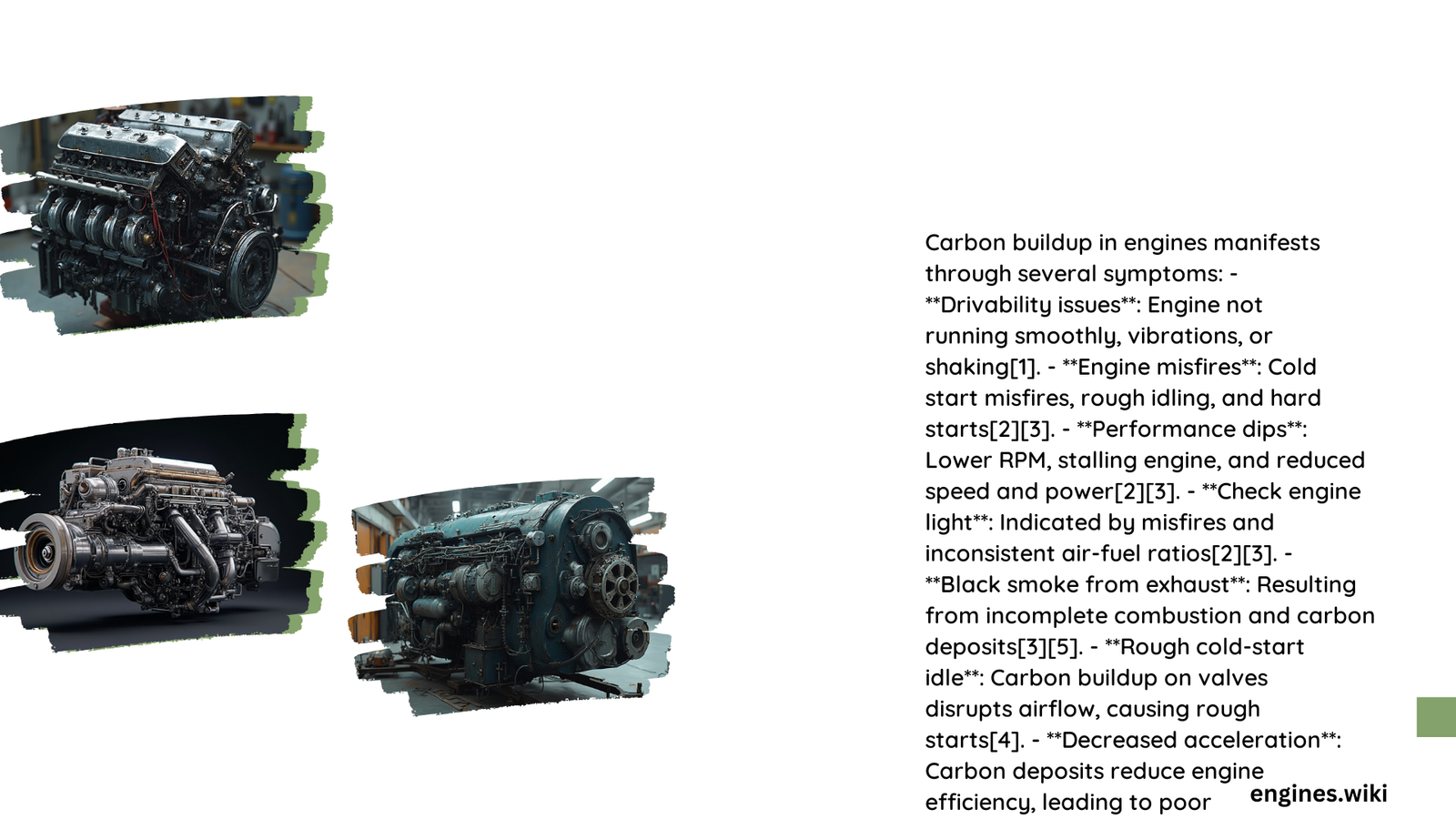Carbon build up in vehicle engines represents a silent performance killer that can gradually degrade your engine’s efficiency, causing multiple mechanical complications. Vehicle owners often experience mysterious performance drops, unusual engine behaviors, and reduced fuel economy without understanding the underlying carbon deposit problem that systematically compromises engine functionality.
What Are Carbon Build Up Engine Symptoms?
How Do Performance Issues Manifest?
Carbon buildup creates a complex web of mechanical challenges that progressively impact engine performance. Drivers might notice several distinctive symptoms:
- Drivability Indicators
- Unexpected engine vibrations
- Inconsistent acceleration
- Reduced overall power output
-
Intermittent misfiring
-
Audible Warning Signs
- Knocking sounds during acceleration
- Unusual pinging noises
- Rough idling characteristics
What Specific Performance Metrics Change?
| Performance Metric | Impact Level | Potential Consequence |
|---|---|---|
| Horsepower | Moderate Reduction | 5-15% Power Loss |
| Fuel Efficiency | Significant Decline | 10-20% Increased Consumption |
| Acceleration | Noticeable Degradation | Slower Response Times |
Where Do Carbon Deposits Typically Accumulate?
Carbon deposits strategically concentrate in critical engine zones:
– Intake valves
– Combustion chambers
– Cylinder walls
– Injector nozzles
– Spark plug regions
How Can Drivers Diagnose Carbon Build Up?

What Diagnostic Techniques Work Best?
Professional mechanics employ multiple strategies:
– Advanced diagnostic scan tools
– Visual engine component inspections
– Performance baseline comparisons
– Compression tests
– Exhaust gas analysis
What Cleaning Methods Resolve Carbon Buildup?
- Chemical Cleaning Techniques
- Specialized chemical solutions
- Targeted deposit removal
-
Minimal engine disassembly required
-
Mechanical Cleaning Approaches
- Walnut shell blasting
- Precision carbon removal
- Comprehensive valve and chamber cleaning
How Much Does Carbon Build Up Remediation Cost?
Remediation expenses vary based on severity:
– Basic cleaning: $100 – $300
– Comprehensive service: $500 – $2,000
– Severe buildup restoration: Up to $3,500
What Preventative Measures Help?
Proactive strategies can minimize carbon deposit risks:
– Use high-quality fuel
– Perform regular maintenance
– Choose synthetic motor oils
– Implement periodic engine treatments
– Avoid short, infrequent driving trips
When Should Immediate Action Be Taken?
Critical warning signs demanding immediate professional assessment:
– Persistent check engine light
– Consistent misfiring
– Significant power reduction
– Unusual engine sounds
– Decreased fuel economy
Technical Insights
Carbon buildup predominantly affects direct injection engines, where traditional fuel-washing mechanisms cannot naturally clean intake valves. Modern automotive engineering increasingly recognizes this challenge, developing advanced mitigation technologies.
Conclusion
Understanding carbon build up engine symptoms empowers vehicle owners to protect their automotive investments. Early recognition and professional intervention can prevent extensive engine damage and maintain optimal performance.
Pro Tips
- Monitor vehicle performance consistently
- Address symptoms promptly
- Consult certified automotive professionals
- Maintain comprehensive service records
Reference:
– Autotech West Islip
– CarParts.com
– AXI International
